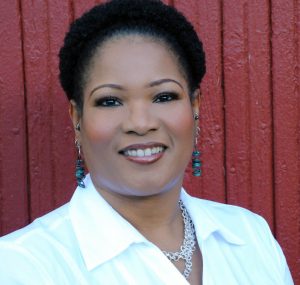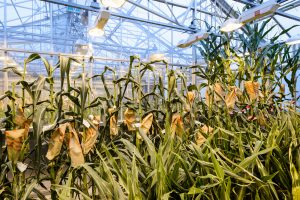Engagement with Food and Agricultural Systems
Watch the lecture here.
We will provide brief overviews of several examples of how the University of Wisconsin is deeply involved in food and agriculture throughout its history and how it continues to engage with many communities. Steve will talk about vocational training in agriculture for Veterans, Native Americans, and under-served urban communities; Monica will talk about how historic injustices have led African-American communities to embrace food justice and food sovereignty; and Greg will reflect on his experiences of Extension as a food systems change agency.
Visit the Facebook event here.
Stream live here on October 15, 2020 at 6 pm.
Steve Ventura is the Gaylord Nelson Distinguished Professor of Environmental Studies and Soil Science at the University of Wisconsin-Madison (UW). He is Chair of the Agroecology Program, and the Director of the Land Tenure Center. His expertise is in land and geographic information systems (GIS) as applied to a wide range of issues including land management and resource protection, water quality, critical habitat, agricultural conservation, precision agriculture, and land records modernization. Current research includes community and regional food systems, risk and mitigation of toxicants in the environment, farm woodlot management, and cumulative water quality impacts of hard rock mining. He was the co-Project Director for the Community and Regional Food Systems Project, and is currently leading the effort to create the UW School for Urban Agriculture.
 Monica M. White earned a Ph.D. from Western Michigan University in Sociology. She is an assistant professor of Environmental Justice at the University of Wisconsin-Madison with a joint appointment in the Gaylord Nelson Institute for Environmental Studies and the Department of Community and Environmental Sociology and is a former Chancellor’s Postdoctoral Fellow in the Department of African American Studies at the University of Illinois-Urbana Champaign.
Monica M. White earned a Ph.D. from Western Michigan University in Sociology. She is an assistant professor of Environmental Justice at the University of Wisconsin-Madison with a joint appointment in the Gaylord Nelson Institute for Environmental Studies and the Department of Community and Environmental Sociology and is a former Chancellor’s Postdoctoral Fellow in the Department of African American Studies at the University of Illinois-Urbana Champaign.
Her research engages communities of color and grassroots organizations that are involved in the development of sustainable community food systems as a strategy to respond to issues of hunger and food inaccessibility. Her publications include, “Sisters of the Soil: Urban Gardening as Resistance Among Black Women in Detroit” and “D-Town Farm: African American Resistance to Food Insecurity and the Transformation of Detroit.” She is currently working on her first book, “Freedom Farmers: Agricultural Resistance and the Black Freedom Movement, 1880-2010,” which contextualizes new forms of contemporary urban agriculture within the historical legacies of African American farmers who fought to acquire and stay on the land. Using historical and contemporary examples, Freedom Farmers examines the development of farmers’ cooperatives as strategies of resistance, and documents the ways that these organizations, in general, and Black farmers specifically, have contributed to the Black Freedom Movement.
As a result of her scholarship and community work, Dr. White has received several grants including a multi-year, multi-million dollar USDA research grant to study food insecurity in Michigan. She has also received several awards including the 2013 Olsen Award for distinguished service to the practice of Sociology from the Michigan Sociological Association and the Michigan Campus Compact Faculty/Staff Community Service-Learning Award. She was appointed to the Food Justice Task Force sponsored by the Institute for Agricultural Trade Policy (IATP), maintains a highly ranked and reviewed blog (soil2soul) and is highly sought after and has presented her work at many national and international community organizations, colleges and universities.
 Greg Lawless served as a University of Wisconsin Extension state specialist on a wide range of food system issues from 1995-2019. At the UW Center for Cooperatives, he developed a domestic co-op development program with an emphasis on the food and agricultural sectors in Wisconsin. As Director of Agricultural Initiatives, he supported entrepreneurship and economic development with a focus on local food markets, small-scale food processing, and angel investing. His research has included food co-ops in rural areas, off-farm investment strategies, community innovations to alleviate food insecurity, and food waste composting to improve urban soils. A common thread throughout his work is collaborative, multi-sector strategies to develop and modify food systems to improve outcomes. Greg earned a BA in Political Science at the University of Illinois and an MS from the Nelson Institute for Environment Studies at the University of Wisconsin-Madison.
Greg Lawless served as a University of Wisconsin Extension state specialist on a wide range of food system issues from 1995-2019. At the UW Center for Cooperatives, he developed a domestic co-op development program with an emphasis on the food and agricultural sectors in Wisconsin. As Director of Agricultural Initiatives, he supported entrepreneurship and economic development with a focus on local food markets, small-scale food processing, and angel investing. His research has included food co-ops in rural areas, off-farm investment strategies, community innovations to alleviate food insecurity, and food waste composting to improve urban soils. A common thread throughout his work is collaborative, multi-sector strategies to develop and modify food systems to improve outcomes. Greg earned a BA in Political Science at the University of Illinois and an MS from the Nelson Institute for Environment Studies at the University of Wisconsin-Madison.

